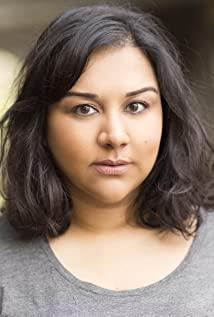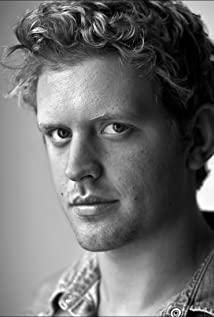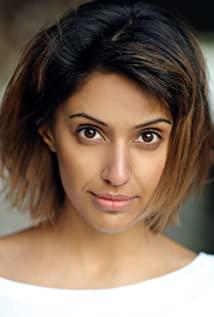Feel Good i s a low budget 6-episode TV show which mysteriously skipped my attention when it was first brought up by a friend: probably because it features no big star (Lisa is one, but in a small role), and British TV shows like Fleabag and Killing Eve have raised the bar very high now.
However, one night, I started to watch the first episode and was very impressed. The not so sub plot of addiction is so well-written. I really like it when Mae (its main character shares the same name with the writer and lead actor , which is a bit confusing) expands the definition of'addiction':'it's all the same feelings, craving, and withdrawl, and relief, and obsession. We are just swapping one addiction for another'. By doing that, Mae Martin ( I will use the full name when referring to the creator) connects the love story and Mae's struggle to stay clean together. Mae Martin challenges the audience to view addiction as not only a struggle among a group of people, but something many of us face when being in a toxic relationship with partners, or, say, social media. By then, I am convinced Feel Goodis quite good because the creators know'nuances'. Its focus on addiction also reminds me of Killing Eve S2, the key word for its 2nd season is'obsession'. While both handle compulsive/toxic feelings between people/people and object, Killing Eve ’s take on obsession is disappointing, Feel Good, on the other hand, only gets better episode by episode.
Story aside, I am mesmerized by how the show introduces the love story to the audience. It is fast-paced. As Guardian remarks, ' Feel Goodmoves so quickly and lightly that it seems impossible it could also be managing to construct characters and burrow into psyches as deeply and empathically as it does.' You never need to fast-forward; it's densely-packed but you won't feel stressful; the plots mingle effortlessly. It takes 30 seconds for Mae and George to fall in love with each other. I love how unconventional and unapologetic it is. I love how an LGBTQIA (bless Joyce) story focus on how the two lovers enjoy their relationship ( at least for the most part) without giving too much attention to how they are unsure if the other is into them, or suffering from loneliness because they can't find a partner. Of course the loneliness issue exists and there is suffering, but there are many representations of those already. Feel Good shows how the relationship can be the start, rather than the ending, of a story.
I also like how the struggles of Mae and George are more about themselves making choices than them being in disagreement with a suffocating society. It is refreshing to see not only Mae's parents, but George's mother, support their sexuality. Mae's gig pals don't make a fuss about her having a girlfriend. The roommate Phil is an angel. The lead of the support group is a gay man; Lava is loved by her mother regardless of her sexuality. While Binky's husband and his friends are'piece of shit' , I don't see them as homophobic (I could be wrong though). The show demonstrates that everyone can and should be nice to LGBT+ community. I like how Feel Gooddoesn't use societal approval as a trope; instead, it allows us to see Mae and George as individuals who make their own decisions. Yes, sexuality is and will be important in their lives, but they don't let it to devour them , they can still breathe.
The relationship is beautifully written and wonderfully performed. I mean THE CHEMISTRY!! Yes there is sex. As Mae Martin said, she didn't want the lesbian sex to be voyeuristic. I congratulate her in doing a fantastic job!! Feel Good has amazing sex scenes: they are romantic, witty, hilarious, and honest. The director and writers make sure the sex scenes are not about sex/lust only, they are also about female pleasure. Mae and George communicate and share their sexual preferences; they don't force their fetish on the other, instead, they ask politely. The show doesn't mystify lesbian sex: even lesbians can't cum and that's ok! Feel Good has achieved what Sex Educationhas done: it has educated people (older than high schoolers) how to have sex, and more importantly, how to discern when the relationship is going south.
There are nudity scenes and they are (quite literally) serving the plot: it is when Mae feels most vulnerable physically. The paradox of the physicality and the personality is, however, not restricted to gay people. Mae is struggling because she believes however hard she tries, she can never have George in the long haul because George is'culturally straight'. George, however, insists this idea is just in Mae's head. (Or is it?) It becomes apparent that the couple is not on the same page on many things. Mae is shy but she wants public validation of their relationship: she wants to be blessed by George's family and friends. George is popular (win the lottery) but she is ultra private when it comes to Mae. She points out her friends just want to crack a joke and emotions (mind, not sexuality), for them, is gross. Eventually,George will have to face her own real emotions. There is a moment where Mae questions why George never like/retweet her social media stuffs. As Fleabag says'Hair is everything', the (non)usage of social media, I argue, is (almost) everything. This again shows the discrepancy between the couple – which, of course, is normal; in every relationship/friendship, such disagreements happen and that's what makes this show so relatable.
It is interesting to note that the dynamic between the two flows all the time. I find myself on the side of Mae and then I am on George's side! For example, the first episode shows Mae concealing her addiction history from George, which is a bit dishonest; but George also makes Mae think she's already mentioned her to her friends while actually she's dating some Crenshaw dude. I find it especially interesting that while George is portrayed as a cold person (she leaves Mae alone in a party; she's rather cold towards Phil etc etc), Mae can also be quite aloof – check what she does to Lava. When she says let's not share this with Maggie, it is as if George were saying let's not tell my friends now.
Talking about George and her friends, I really like how the show does about their friendship. It shows that those friendships, even though'long haul', are not necessarily genuine. Indeed, things can be tricky, if not scary, when friends finally choose to be honest with each other, right?
Binky's husband and friends are hilarious characters, but the show makes sure not all the male characters are caricatured. I like Phil a lot; he's giving me the neighbor who ended up marrying Hannah's boyfriend's sister in Girls , especially when he's mentioning all the baby stuffs . Mae's dad is a charming character; but I am not sure if he's a good dad. His'Oh I need to check the garden' is a specimen of dad type, who leaves all the dirty job of communicating with kids to mums. The show also inserts in a MeToo story plot where things turn sour quickly. In all, the portrayals of male characters are multifaceted. Well done.
Last but not the least: small roles. Does the show even have small roles? Because everyone shines. Even the shop assistant of that sex shop: the scene is so funny and captivating. Lisa Kudrow is funny but in a cold way – which is really nice. I am not crazy about her first appearance in the laptop; seeing her appear in Blackpool is a real surprise for me (and Mae). I love the scene in Ghost Train the most. Arguing in a horror house/moving train, with all the noise and terrifying man-makes while discussing'real emotions', which is the most terrifying of all – what a genius idea!! The fact that the show keeps vague about why Mae is cast out of the family is an interesting one ; I quite like how her mother points out her privilege and that she has everything she wants when she grows up. Again,the show is looking at the mysterious and intricate human mind that is not so easily explainable. Apart from that, I don't think there are a lot of TV shows that discuss'privilege'. Kudos to the writers for highlighting this aspect.
The photography is really pretty. It, like TEOTFW , has a consistent tone, which is even reflected when Mae and George are in bed. Note the beautiful blue shadow. The music is nice. The costume looks comfy and lovely (never let the costume steal the show-- I'm talking to you, Killing Eve ). My favorite, as I said earlier is the pace of narration. Mae has run a lot and it is a signature of Feel Good , like Fleabag's looking at the camera.
Feel Good is about a female stand-up comedian. In the States, there is The Marvelous Mrs Maisel . Both Mae and Midge suffer from a backfire from they using real-life stories with their partner (judging from S1 finale, haven't watched S2 yet). It is interesting to think how personal the stand-up mateials can be, but having just watched Hannah Gadsby's Nanette , I am reminding myself that in order to make things funny, the'truth' can be compromised. While Nanette is almost metafictional when Hannah approaches/disconstructs what makes comedy, I don't think that is the angle Feel Goodis heading towards. However, it is still fit to think about the show amongst the powerful works by Mae Martin's fellow female comedians. The freshness of the show also reminds me of Girls (with its minute depictions of modern female life) and Fleabag (with its candidacy about real emotions). Feel Good deserves more recognition and PLEASE CAN WE HAVE SEASON 2 THANK YOU NETFLIX!!
View more about Feel Good reviews











